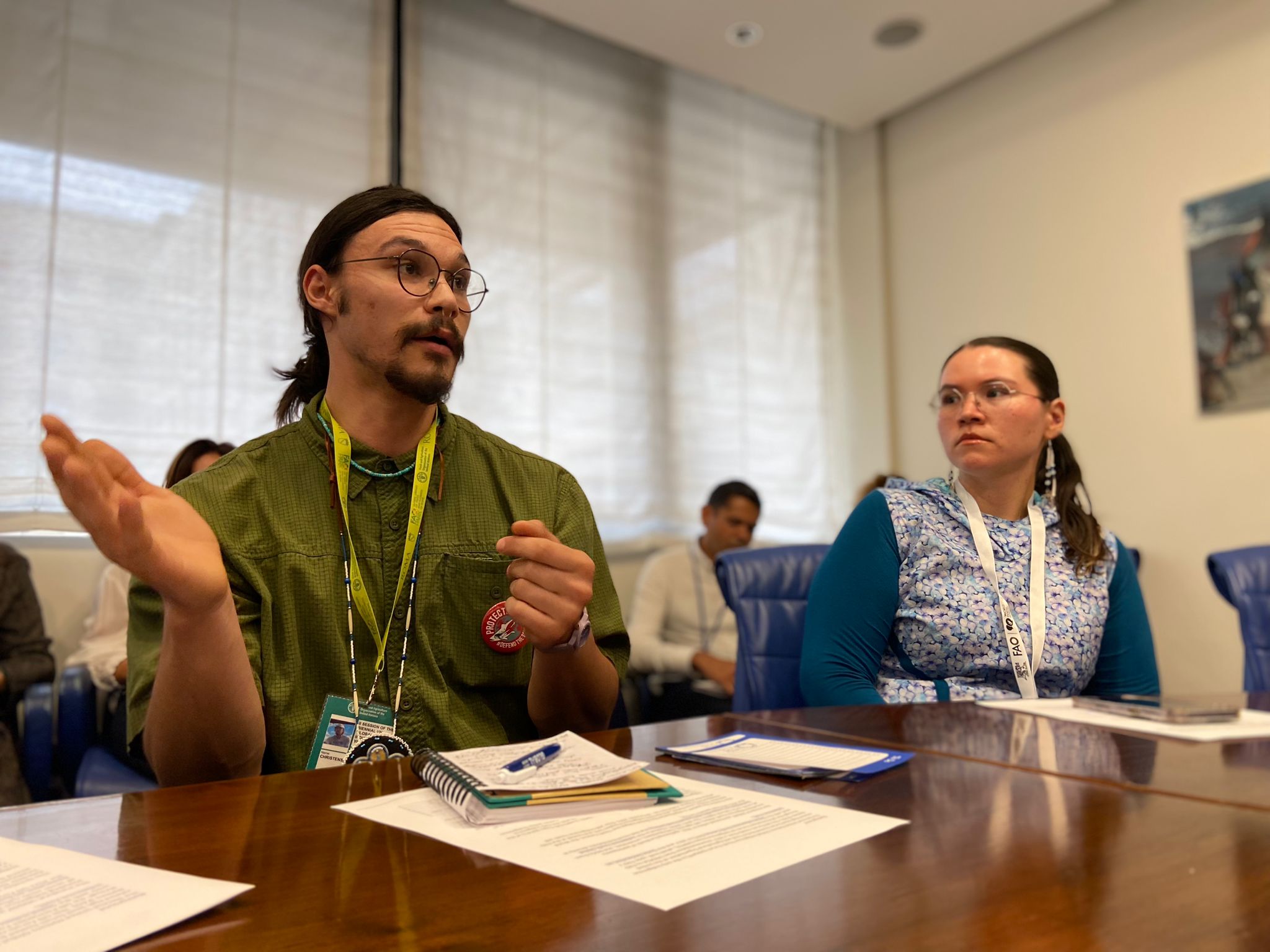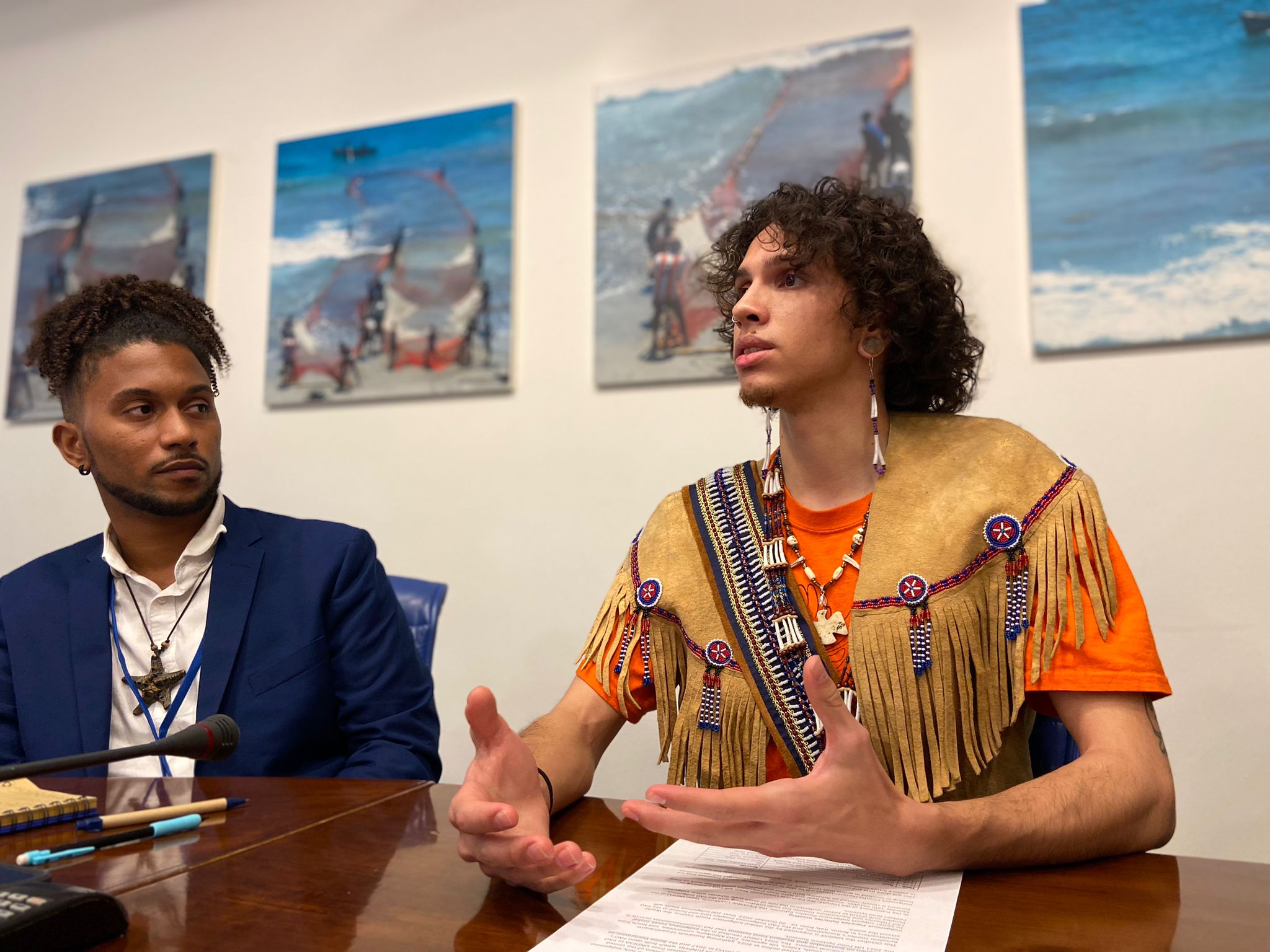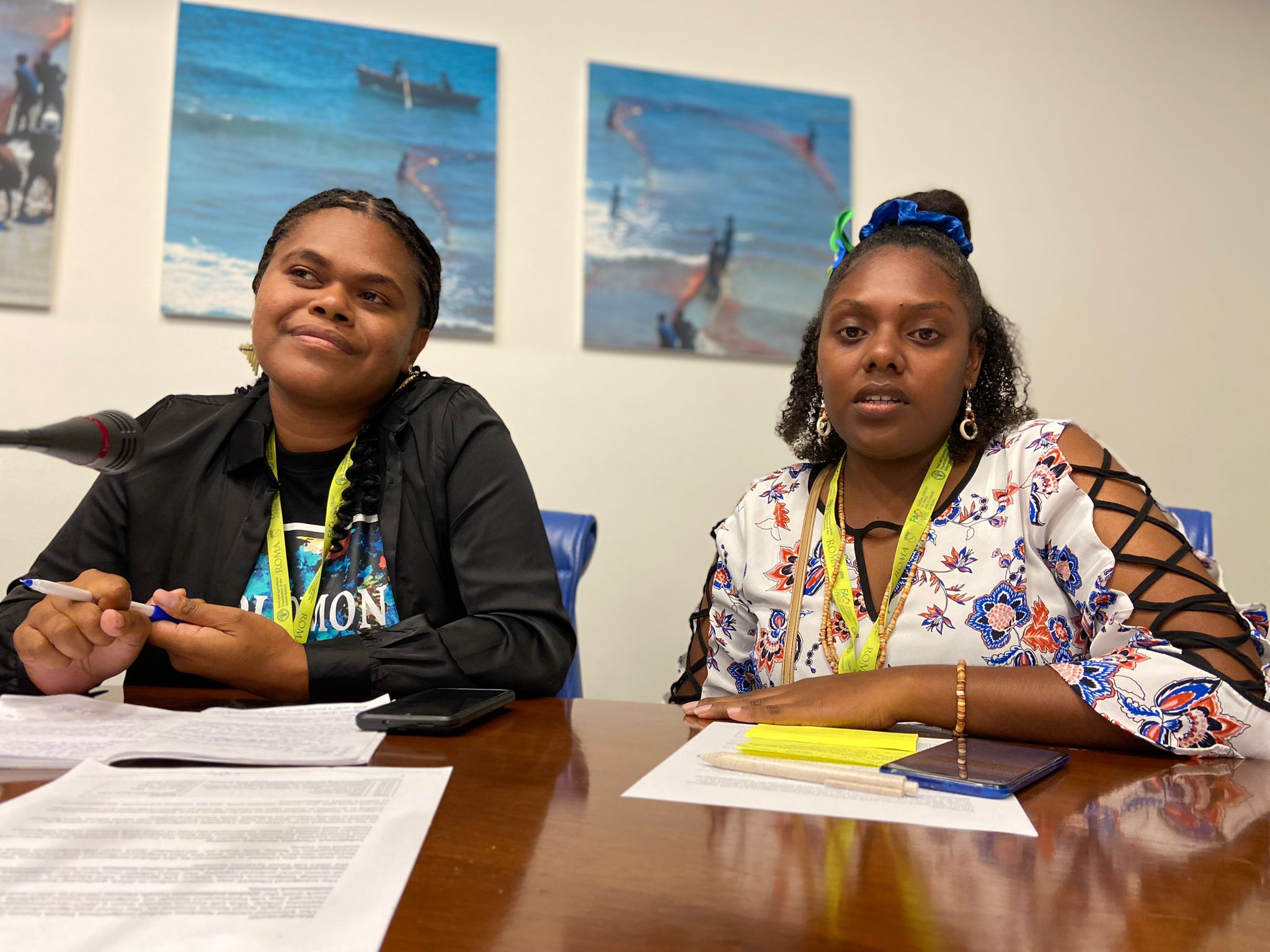Empowering Indigenous Peoples through sustainable fisheries: A dialogue at the UN biennial Global Indigenous Youth Forum (UNGIYF)

Within the framework of the biennial United Nations Global Indigenous Youth Forum (UNGIYF), a meeting took place on Monday, 16 October, to hear and learn from Indigenous Peoples youth representatives whose work on Food Systems is closely related to fisheries, both inland and marine.
For us fish are not resources, they are relatives who sustain us. We need to incorporate these values into creating solutions and recognize that indigenous fisheries are linked to biodiversity and to scientific knowledge. What we have seen is that the river knowledge is dying with the disappearance of fish populations. Communities are no longer being able live their indigenous lives as they have done for centuries”. (Nels Christensen, Alaska, USA).
The meeting was an opportunity to foster dialogue with the Indigenous youth representatives and shed light on the work carried out by FAO as well as to identify opportunities for future. Ms Nicole Franz, lead of the FAO Equitable Livelihoods team, initiated the discussion with a presentation of the Voluntary Guidelines for Securing Sustainable Small-Scale Fisheries in the Context of Food Security and Poverty Eradication (SSF Guidelines) , emphasizing the importance of including Indigenous Peoples in conversations and dialogues on small-scale fisheries.
Jessica Vega, Advisor to the Global Indigenous Youth Caucus, drew attention to the importance of integrating indigenous fisheries representatives into discussions on tenure, climate change, and governance: “Conversations usually focus on land and forests, but we mustn’t overlook the crucial right to access water bodies, seas, and oceans for countless communities worldwide
The twelve Indigenous Peoples Youth representatives from five different regions shared some of the initiatives they are leading within their territories to address the pressing challenges within fisheries. These include threats to access to aquatic resources, limited market access for Indigenous Peoples’ fisheries products, important post-harvest losses, and lack of value addition to their products. They also noted the loss of traditional/indigenous fishing techniques; the need for ecosystem restoration; the importance of maintaining a healthy aquatic environment, which is essential to the survival of many communities; the necessity of integrating local and scientific knowledge; and the urgency of concrete actions and enhanced mechanisms to protect both resources and communities.
Another common concern voiced was the difficulty in effectively conveying their stories, in a way that encompasses all dimensions of the value of fisheries to Indigenous Peoples. This involves sharing recipes, fishing techniques, traditional indigenous gear, and a wealth of traditional knowledge. They stressed the need to not only document and preserve this largely oral knowledge passed down through generations, but also integrate it into research, studies, and policies. “Integrating traditional fishing knowledge with science can pave a way for more sustainable fishing practices and increase food security for communities that depend mainly on aquatic foods. By including modern techniques to preserve fish, for example, we can maintain fish for longer periods and have food when disasters happen, which are becoming more common due to climate change” (Miriam Arzienta Sulu, Solomon Islands).
The United Nations Global Indigenous Youth Forum (UNGIYF)
The biennial United Nations Global Indigenous Youth Forum (UNGIYF) is the only Indigenous-related high-level forum hosted by the Food and Agricultural Organization of the United Nations (FAO). This UN Forum originated from a 2017 recommendation from UNDESA to FAO through the UN Permanent Forum on Indigenous Issues (UNPFII). The recommendation was built upon FAO´s work with the Global Indigenous Youth Caucus (GIYC) in 2017 and the Rome Declaration on Indigenous Youth.
The Forum provides a platform for dialogue among Indigenous Youth and FAO Members, UN Agencies, Universities, Research centres and other stakeholders.
The inaugural UNGIYF was conducted online in 2021, gathering a substantial number of participants including Indigenous Youth, Elders, UN agencies, FAO Members, universities, and NGOs from all seven socio-cultural regions. The 2021 UNGIYF resulted in the Indigenous Youth Global Declaration on Sustainable and Resilient Food Systems which directly contributed to the 2021 UN Food Systems Summit.
In October 2023 the UNGIYF is being organized by the Global Indigenous Youth Caucus, the World Reindeer Herder’s Association, and the FAO Indigenous Peoples Unit. The forum is being hosted at the FAO headquarters in Rome, Italy from 16 - 20 October 2023, with a participation of over 200 Indigenous Youth.



